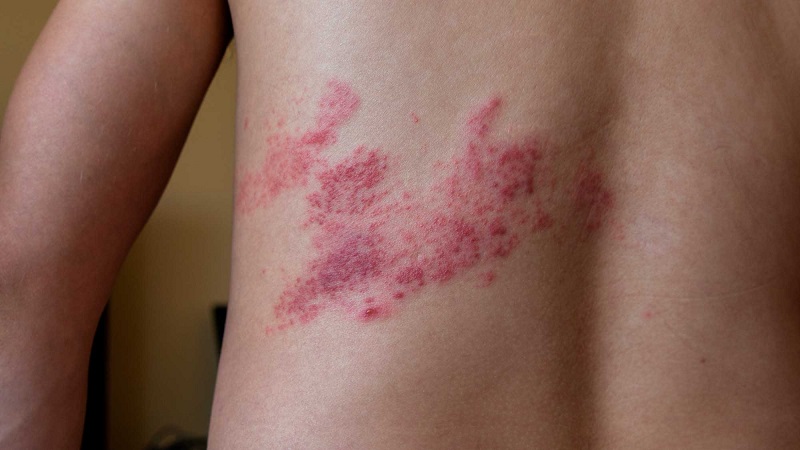Shingles and long-term risk of cardiovascular disease Summary Background We investigated the longitudinal association of herpes zoster (HZ), commonly known as "shingles" , and the long-term risk of stroke or coronary heart disease (CHD) among participants in 3 large US cohorts, the NHS ( Nurses ’ Health Study ), NHS II (Nurses’ Health Study II) and HPFS (Health Professionals Follow-up Study). Methods and Results Participants were 79,658 women in the NHS (2000–2016), 93,932 women in NHS II (2001–2017) and 31,440 men in HPFS (2004–2016), without previous stroke or CHD. Information on HZ, stroke, and CHD was collected in biennial questionnaires and confirmed by medical record review. Cox proportional hazards regression models were used to estimate multivariable-adjusted hazard ratios for stroke and CHD by years since HZ compared with never HZ. During more than 2 million person-years of follow-up, 3603 incident strokes and 8620 incident cases of coronary heart disease were documented. A history of HZ was significantly and independently associated with an increased long-term risk of stroke and coronary heart disease . In pooled analyses, compared with individuals without a history of HZ, multivariable-adjusted hazard ratios (95% CI) for stroke were 1.05 (0.88–1.25) among those aged 1 to 4 years. from HZ, 1.38 (1.10–1.74) for among those 5 to 8 years from HZ, 1.28 (1.03–1.59) among those 9 to 12 years from HZ, and 1.19 (0.90–1.56) among those ≥13 years since HZ. For CHD, the corresponding multivariable-adjusted hazard ratios (95% CI) were 1.13 (1.01–1.27) for 1 to 4 years, 1.16 (1.02–1.32) for 5 to 8 years, 1.25 (1.07–1.46) for 9 to 12 years and 1.00 (0.83–1.21) for ≥13 years. Conclusions HZ is associated with an increased long-term risk of a major cardiovascular event. These findings suggest that HZ has long-term implications and underline the importance of prevention. |
Clinical Perspective
What’s new?
- This study demonstrates that shingles is associated with an almost 30% increased long-term risk of a major cardiovascular event.
- Elevated risk of a major cardiovascular event may persist for ≥12 years after shingles.
- Elevated risk may be greatest among those with potentially immunocompromising conditions or immunosuppressive treatments.
What are the clinical implications?
- These findings suggest that herpes zoster has long-term cardiovascular implications.
- The availability of a safe and effective vaccine provides the opportunity to reduce the burden of herpes zoster and reduce the risk of subsequent cardiovascular complications.

Comments
- The elevated risk may persist for 12 years or more after developing Shingles.
- The risk may be higher among those with potentially immunocompromising conditions or who are taking immunosuppressive treatments.
A new study by researchers at Brigham and Women’s Hospital, a founding member of the Mass General Brigham health care system, showed that shingles, also known as shingles, is associated with a nearly 30 percent higher long-term risk of accidents. stroke or heart attack. Their results are published in the Journal of the American Heart Association .
"Our findings suggest that shingles has long-term implications and highlight the importance of public health efforts for prevention," said lead author Sharon Curhan, MD, ScM, a physician and epidemiologist in the Division of Network Medicine. Channing at Brigham and Women’s Hospital. “Given the increasing number of Americans at risk for this painful and often disabling disease and the availability of an effective vaccine , shingles vaccination could provide a valuable opportunity to reduce the burden of shingles and reduce the risk of subsequent cardiovascular complications.” ”.
Shingles often causes a painful rash and can occur anywhere on the head or body. Shingles is caused by the varicella zoster virus, the same virus that causes chickenpox. After a person has chickenpox, the virus remains in his or her body for the rest of his or her life. Years and even decades later, the virus can reactivate as shingles. Almost everyone age 50 and older in the U.S. has been infected with the chickenpox virus and is therefore at risk of contracting shingles.
About 1 in 3 people will develop shingles in their lifetime, with more cases projected as the population ages and more people have compromised immunity due to illness or medication use.
The most common complication of shingles is postherpetic neuralgia . This condition affects the nerve fibers and skin, causing burning pain that lasts long after the shingles rash and blisters disappear. However, a growing body of evidence suggests that virus reactivation may have even longer lasting side effects.
The virus may play a role in the development of cardiovascular disorders, including stroke and coronary artery disease. The virus has been detected in large and small blood vessels, which over time can cause inflammation and chronic vascular changes. These changes can increase the risk of blockages in blood vessels, restricted blood flow, and cardiovascular events such as strokes and heart attacks.
The prospective longitudinal study followed three large US cohorts of more than 200,000 women and men: the Nurses’ Health Study (~79,000 women), the Nurses’ Health Study II (~94,000 women), and the Health Professionals Follow-up Study (~31,000 men). Participants had no history of stroke or coronary heart disease.
The team collected information on shingles, stroke, and coronary heart disease using questionnaires collected every two years and confirmed the diagnoses by reviewing medical records. The team followed participants for up to 16 years and assessed whether those who had developed shingles had an increased risk of stroke or coronary heart disease years after the HZ episode.
The researchers tracked incidences of stroke and coronary heart disease, defined as having a nonfatal or fatal myocardial infarction or a coronary revascularization procedure (CABG, coronary artery bypass graft, or percutaneous transluminal coronary angioplasty). The researchers also evaluated a composite outcome of cardiovascular disease, which included stroke or coronary heart disease, whichever came first.
The results showed that people who had previously developed HZ had a 30% higher long-term risk of suffering a major cardiovascular event compared to those who had not had shingles, and the elevated risk may persist for 12 years or more after having had HZ.
Because of the timing, much of the study was conducted in the period before HZ vaccines became widely available. Even after its introduction, vaccination uptake has generally been low. Because of these limitations, the researchers were unable to evaluate whether vaccination status may influence the association of shingles and the long-term risk of a major cardiovascular event.
As more people choose to receive the HZ vaccine, future studies could examine whether vaccination influences the relationship between shingles and cardiovascular disease risk. Curhan adds: "We are currently collecting vaccination information among our participants and hope to conduct these studies in the future."
















